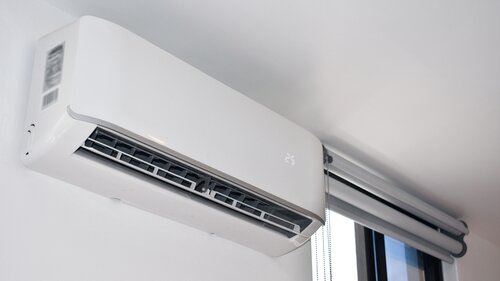Ductless air conditioners provide effective cooling without the need for ductwork, making them a flexible installation option that enhances comfort in various environments. Explore the remarkable advantages of ductless air conditioning systems.

What Is a Ductless Air Conditioner?
Ductless air conditioners, commonly referred to as mini-split systems, are innovative heating and cooling solutions that operate without ducts. These systems consist of an outdoor compressor unit and one or more indoor air-handling units, which are typically mounted on walls or ceilings and connected to the outdoor unit via refrigerant lines. This configuration allows for targeted heating and cooling in specific areas of a home or building, making them increasingly popular for both residential and commercial use.
Recent advancements in ductless technology have significantly enhanced their efficiency and performance. Many models now come with features such as programmable thermostats and multi-zone capabilities, enabling users to tailor their comfort levels in different areas.
Ductless air conditioners are also known for their quiet operation, with many models functioning at sound levels comparable to a whisper. This makes them an ideal choice for bedrooms, offices, and other quiet environments. The combination of energy efficiency, flexibility, and low noise has led to the rising popularity of ductless systems in various settings, from urban apartments to larger homes.
Advantages of Ductless Air Conditioners for Efficient Cooling
Ductless air conditioners come with numerous benefits that reinforce their reputation as efficient cooling solutions. One of the main advantages is their ability to provide zoned cooling, allowing users to control temperatures in individual rooms or areas. This targeted approach not only enhances comfort but also helps reduce energy consumption by cooling only occupied spaces. Additionally, most ductless air conditioners are equipped with advanced filtration systems that improve indoor air quality by effectively removing dust, allergens, and other pollutants.
The combination of efficient cooling, easy installation, and enhanced air quality makes ductless air conditioners an appealing choice for both homeowners and businesses.
Energy Savings and Flexible Installation with Ductless Systems
Energy savings are a major consideration for many when selecting an air conditioning system, and ductless air conditioners excel in this area. Without ductwork, energy losses that often occur in traditional systems—where conditioned air can escape through leaks or poorly insulated ducts—are eliminated. As a result, ductless systems typically achieve higher energy efficiency ratings, leading to lower utility bills for consumers. This efficiency is especially beneficial in regions with extreme temperatures, where cooling demands can be significant.
Flexible installation is another hallmark of ductless systems. The compact design of the indoor units allows for various mounting options—such as wall-mounted, ceiling-mounted, or floor-mounted configurations. This versatility facilitates the integration of ductless air conditioners into a wide range of architectural styles and spaces. Additionally, the capability to connect multiple indoor units to a single outdoor unit provides further customization, enabling homeowners to adapt their cooling solutions to their specific needs.
Many ductless systems also incorporate inverter technology, allowing the compressor to adjust its speed according to cooling demand. This feature not only boosts energy efficiency but also ensures consistent comfort levels. As the demand for energy-efficient and adaptable cooling solutions continues to grow, ductless air conditioners are set to play a significant role in the future of HVAC technology.
Learn More About Ductless Air Conditioners
For those looking to delve deeper into the benefits and features of ductless air conditioners, a wealth of resources is available. Industry reports, academic studies, and expert reviews can provide valuable insights into the latest advancements in ductless technology, energy efficiency, and installation practices. Understanding the advantages of these systems can empower consumers to make informed decisions regarding their heating and cooling needs, ultimately leading to enhanced comfort and energy savings in their homes or businesses.

